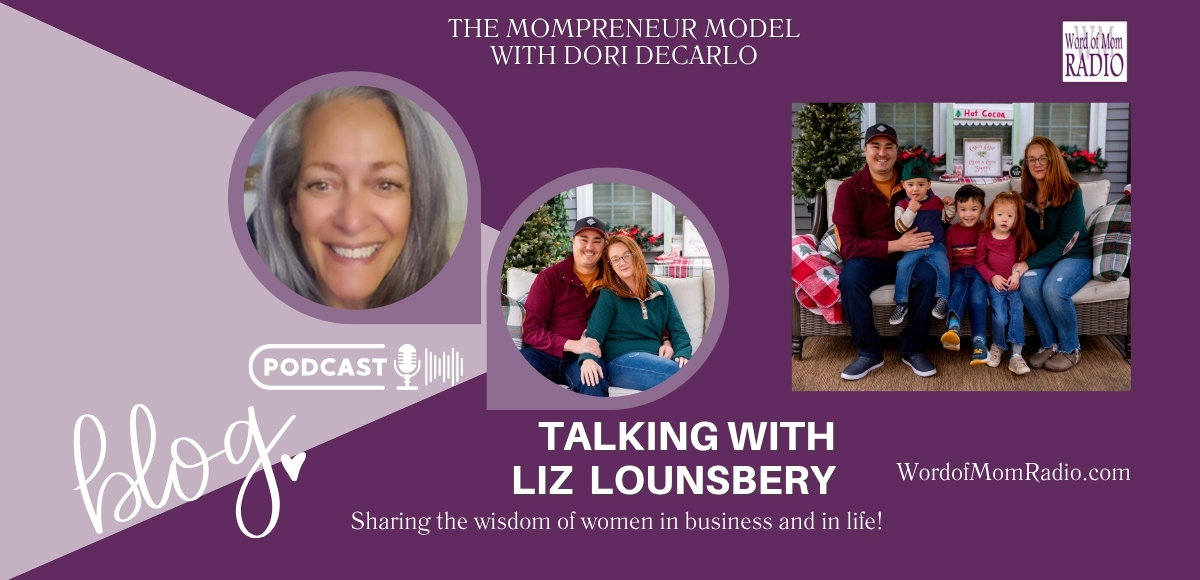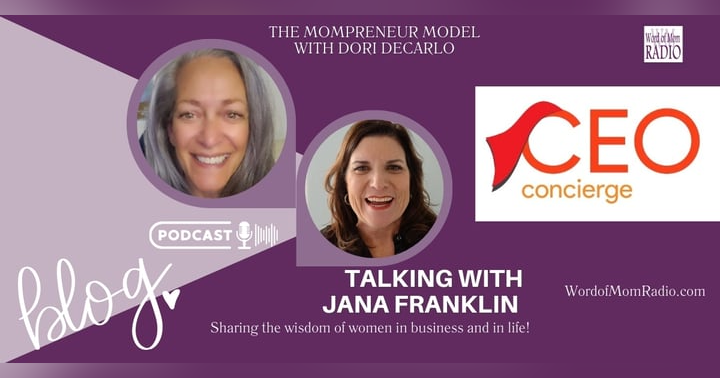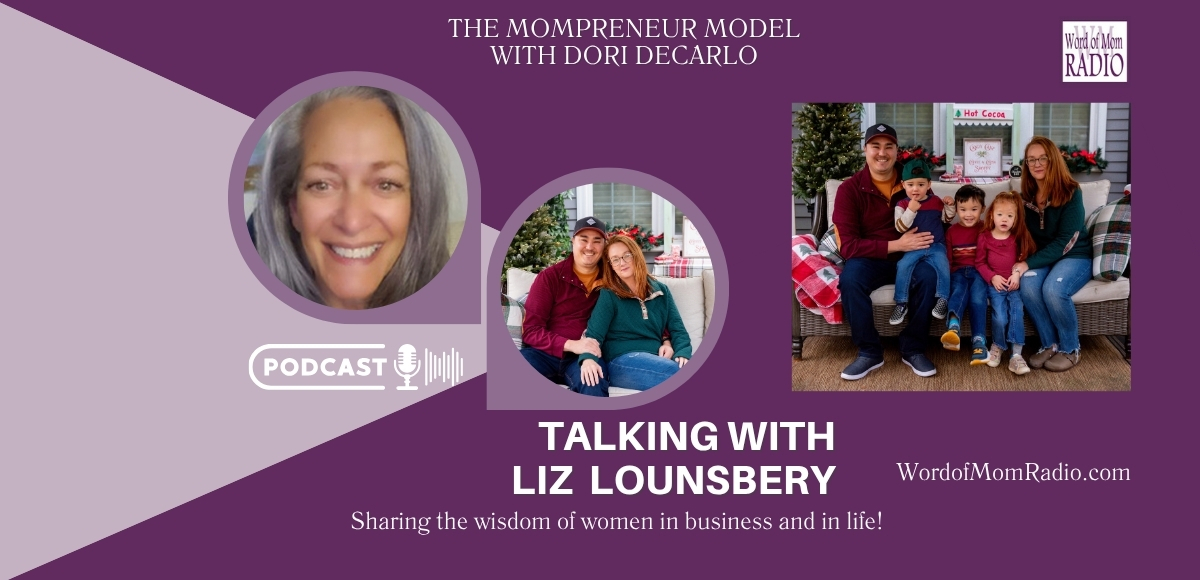Advocating for Children with Rare Diseases: A Mother's Perspective

Welcome to a space where we delve into the critical world of advocacy for children with rare diseases and disabilities. In this blog post, we'll explore the profound impact of a mother's unwavering dedication to her child's well-being. Through the experiences of Liz Lounsbery and her daughter Isla, we’ll uncover the battles fought for accessible healthcare, the importance of amplifying the voices of medically complex children, and the everyday victories that make the journey worthwhile. This blog post serves as an extension of our recent podcast episode, Elizabeth Lounsbery on The Mompreneur Model with Dori DeCarlo, where Liz shared her story. We encourage you to listen to the episode for even more insights into her remarkable journey. This post aims to dive deeper into the topics raised and highlight key takeaways to inspire and inform.
The Urgent Need for Advocacy
The world of rare diseases is vast and often misunderstood. Affecting millions of children and families globally, these conditions present unique challenges that require specialized care, resources, and understanding. Advocacy becomes the cornerstone for ensuring these children receive the support they need to thrive. Without strong advocates, these children risk being overlooked by healthcare systems, educational institutions, and society at large. Advocates help bridge the gap between the medical world and the families, making sure their voices are heard.
Rare diseases, by their very nature, often lack established research, treatment protocols, and even diagnostic tools. This scarcity of information can leave families feeling isolated and helpless. Advocacy helps to drive research, raise awareness, and connect families with the limited resources that are available. It also involves lobbying for policy changes that can improve access to healthcare, funding for research, and support services for families affected by rare diseases.
Moreover, advocacy plays a crucial role in promoting inclusivity and acceptance. Children with rare diseases often face social stigma and exclusion due to their differences. Advocates work to educate the public, challenge misconceptions, and create a more inclusive society where these children are valued, respected, and given the opportunity to participate fully in all aspects of life. This includes pushing for accessibility in schools, recreational activities, and public spaces.
Meet Liz Lounsbery: A Mother's Mission
Liz Lounsbery is a force of nature. As an active-duty military spouse and mother of three, she embodies resilience, determination, and unwavering love. Her journey began when her daughter, Isla, was diagnosed with multiple rare diseases and disabilities. Faced with a complex medical landscape and a system that often felt indifferent, Liz transformed into a fierce advocate for her daughter's well-being. Her mission is simple: to ensure that Isla, and children like her, receive the best possible care and have the opportunity to live a joyful, dignified life.
Liz's advocacy extends beyond her own family. She is a passionate advocate for the rare disease and disability communities, working to raise awareness, highlight gaps in care, and celebrate the everyday victories that often go unnoticed. She understands the unique challenges faced by military families navigating the complexities of raising medically complex children, and she uses her platform to support and empower others in similar situations. This involves speaking at conferences, sharing her story on social media, and collaborating with organizations dedicated to rare disease advocacy.
Her background as a military spouse brings an added layer of complexity to her advocacy work. The frequent moves, deployments, and uncertainties of military life can disrupt access to care, create logistical challenges, and add emotional stress to families already burdened by the demands of caring for a child with rare diseases. Liz has become adept at navigating these challenges, and she uses her experiences to advocate for policies and resources that better support military families in need. She advocates for things such as easier transfer of medical records and services when families move to new bases.
Isla's Story: Navigating Rare Diseases and Disabilities
Isla is the heart and soul of Liz's advocacy. Her journey is a testament to the power of resilience, hope, and the unwavering love of a mother. Isla lives with multiple rare diseases and disabilities that require ongoing medical care, therapies, and specialized support. While the specifics of her diagnoses are personal, the challenges she faces are universal to the rare disease community: delayed diagnosis, limited treatment options, and a constant need for advocacy to ensure her needs are met.
Isla's story is not just about the challenges she faces, but also about the joy, love, and laughter she brings to her family and community. Despite her medical complexities, Isla is a vibrant, curious, and loving child who inspires those around her. Liz emphasizes the importance of celebrating Isla's strengths and abilities, rather than focusing solely on her limitations. This includes finding activities that Isla enjoys and can participate in, fostering her independence, and creating a supportive environment where she can thrive.
Navigating Isla's medical care is a constant balancing act. Liz works closely with a team of specialists, therapists, and educators to ensure that Isla receives the comprehensive care she needs. This involves attending countless appointments, managing medications, coordinating therapies, and advocating for accommodations in school. Liz's ability to navigate this complex system is a testament to her resourcefulness, determination, and unwavering commitment to her daughter's well-being. She shares her knowledge and experience with other families, helping them to navigate the same challenges and find the resources they need.
The Unique Challenges of Military Life
Being a military family comes with its own set of unique challenges, and these challenges are amplified when a child has rare diseases or disabilities. Frequent moves disrupt continuity of care, making it difficult to establish relationships with doctors and therapists. Deployments can leave one parent to manage the complex medical needs of their child alone, adding stress and strain to the family. The uncertainties of military life can also make it difficult to plan for the future and access the resources needed to support a child with rare diseases.
One of the biggest challenges for military families is transferring medical records and services when they move to a new base. This process can be time-consuming, confusing, and frustrating, often resulting in delays in care and unnecessary stress. Liz advocates for policies that streamline this process, making it easier for military families to access the care they need, regardless of where they are stationed. This includes advocating for standardized electronic medical records and improved communication between military and civilian healthcare providers.
Another challenge is finding specialists and therapists who are familiar with rare diseases and disabilities in the areas where military families are stationed. Many military bases are located in rural areas where access to specialized medical care is limited. Liz advocates for increased access to telehealth services and expanded training for healthcare providers in these areas. She also works to connect military families with support groups and resources that can help them navigate the unique challenges they face.
Fighting for Accessible Healthcare
Accessible healthcare is a fundamental right for all children, but it is often a major challenge for those with rare diseases and disabilities. The fight for accessible healthcare involves ensuring that children have access to the right doctors, therapies, medications, and equipment, regardless of their location or financial situation. It also involves advocating for policies that support families and remove barriers to care.
One of the biggest barriers to accessible healthcare is the high cost of medical care. Many families struggle to afford the specialized treatments, therapies, and medications that their children need. Liz advocates for policies that expand access to affordable healthcare, such as Medicaid waivers and tax credits for families with medically complex children. She also works to connect families with financial assistance programs and resources that can help them afford the care they need.
Another barrier is the lack of awareness and understanding of rare diseases among healthcare providers. Many doctors are not familiar with rare diseases, making it difficult for families to get accurate diagnoses and appropriate treatment. Liz advocates for increased training for healthcare providers on rare diseases and disabilities. She also works to raise awareness among the general public about the challenges faced by families with rare diseases.
Ensuring Isla's Voice is Heard
Advocacy is not just about speaking for children with rare diseases, but also about empowering them to speak for themselves. Ensuring that Isla's voice is heard means giving her the opportunity to express her needs, preferences, and desires, and advocating for her rights and autonomy. It also means creating a world where all children, regardless of their abilities or diagnoses, are valued, respected, and given the opportunity to participate fully in all aspects of life.
One of the ways Liz ensures that Isla's voice is heard is by involving her in decisions about her care and treatment. She explains medical procedures and therapies to Isla in a way that she can understand, and she gives her the opportunity to ask questions and express her concerns. She also respects Isla's preferences and choices, even when they differ from her own. This empowers Isla to feel in control of her own life and to advocate for her own needs.
Another way Liz ensures that Isla's voice is heard is by advocating for her rights in school and in the community. She works with Isla's teachers and school administrators to ensure that she receives the accommodations and support she needs to succeed. She also challenges discriminatory attitudes and practices that limit Isla's opportunities. This includes advocating for accessible playgrounds, inclusive recreational activities, and policies that promote the inclusion of children with disabilities in all aspects of society.
Everyday Victories: Celebrating Small Wins
In the world of rare diseases and disabilities, progress is often measured in small increments. Everyday victories, such as a successful therapy session, a good day at school, or a moment of connection with family and friends, are cause for celebration. These small wins are a reminder of the progress being made and a source of hope and encouragement for the future. They're a testament to the resilience of the child and the unwavering dedication of their caregivers.
Liz makes a point of celebrating Isla's everyday victories, no matter how small they may seem. She recognizes that each milestone represents a significant achievement and a step forward in Isla's development. She shares these victories with family, friends, and her online community, spreading joy and inspiration to others. This also helps to raise awareness about the challenges faced by families with rare diseases and the importance of celebrating their successes.
Celebrating small wins is not just about acknowledging progress, but also about fostering a positive and supportive environment for Isla and her family. It helps to boost Isla's self-esteem, motivate her to continue working hard, and create a sense of accomplishment. It also helps to strengthen the bond between Liz and Isla and to create lasting memories of their journey together. These small celebrations can provide a critical mental boost to the family as they work through the immense difficulties of rare disease care.
The Quiet Strength of Holding a Family Together
Caring for a child with rare diseases and disabilities can be incredibly demanding, both emotionally and physically. It requires a quiet strength to hold a family together through the challenges, uncertainties, and emotional rollercoaster of this journey. This strength comes from a deep well of love, resilience, and unwavering commitment to the well-being of the child and the family as a whole.
Liz draws on her inner strength to navigate the complexities of caring for Isla while also managing the demands of military life and raising her other children. She finds strength in her faith, her family, and her community of support. She also recognizes the importance of self-care and makes time for activities that nourish her mind, body, and spirit. This includes reading, spending time in nature, and connecting with friends and family.
Maintaining a strong and supportive family unit is essential for the well-being of all family members. Liz works hard to create a loving and nurturing environment where Isla and her siblings feel valued, respected, and supported. She also makes time for family activities and traditions that bring them closer together. This helps to create a sense of normalcy and stability in their lives, despite the challenges they face.
How to Support Families with Rare Diseases and Disabilities
Supporting families with rare diseases and disabilities is a collective responsibility. There are many ways to offer support, from providing practical assistance to raising awareness and advocating for policy changes. Even small acts of kindness can make a big difference in the lives of these families.
One of the most valuable ways to support families is to offer practical assistance with everyday tasks. This could include helping with childcare, running errands, providing meals, or assisting with transportation. These tasks can be overwhelming for families who are already juggling multiple medical appointments, therapies, and other responsibilities. Offering to help with these tasks can lighten their load and give them some much-needed respite.
Another way to support families is to raise awareness about rare diseases and disabilities. This can be done by sharing information on social media, attending advocacy events, or simply talking to friends and family about the challenges faced by these families. The more people who are aware of the issues, the more likely it is that they will be willing to offer support and advocate for change.
A Call to Action
The journey of advocating for children with rare diseases and disabilities is a marathon, not a sprint. It requires sustained effort, unwavering commitment, and a collective determination to create a more inclusive and equitable world for all children. Let us all commit to taking action, in whatever way we can, to support these children and their families.
Whether it's volunteering time, donating to a relevant cause, or simply spreading awareness, every action counts. Together, we can amplify the voices of those who need it most and ensure that all children, regardless of their abilities or diagnoses, have the opportunity to thrive.
Thank you for joining us on this important journey. We hope this blog post has inspired you to take action and make a difference in the lives of children with rare diseases and disabilities. Don't forget to listen to the full story on Elizabeth Lounsbery on The Mompreneur Model with Dori DeCarlo. Let's continue the conversation and work towards a brighter future for all.




